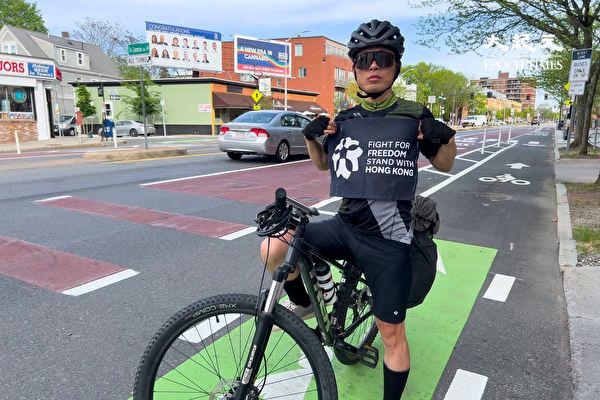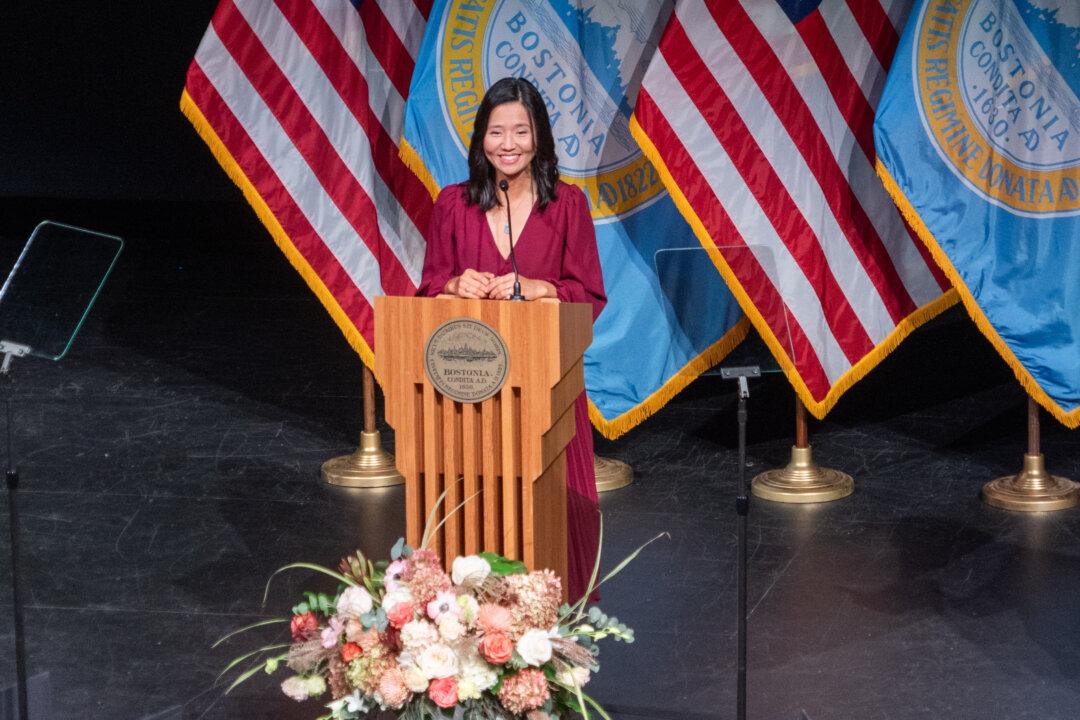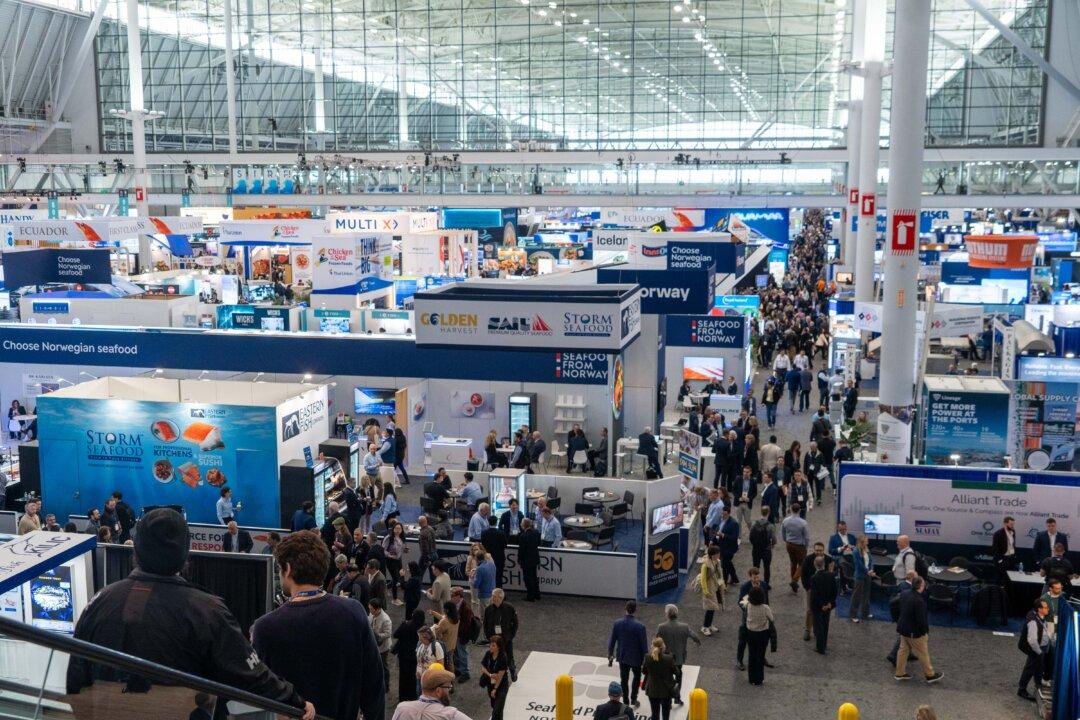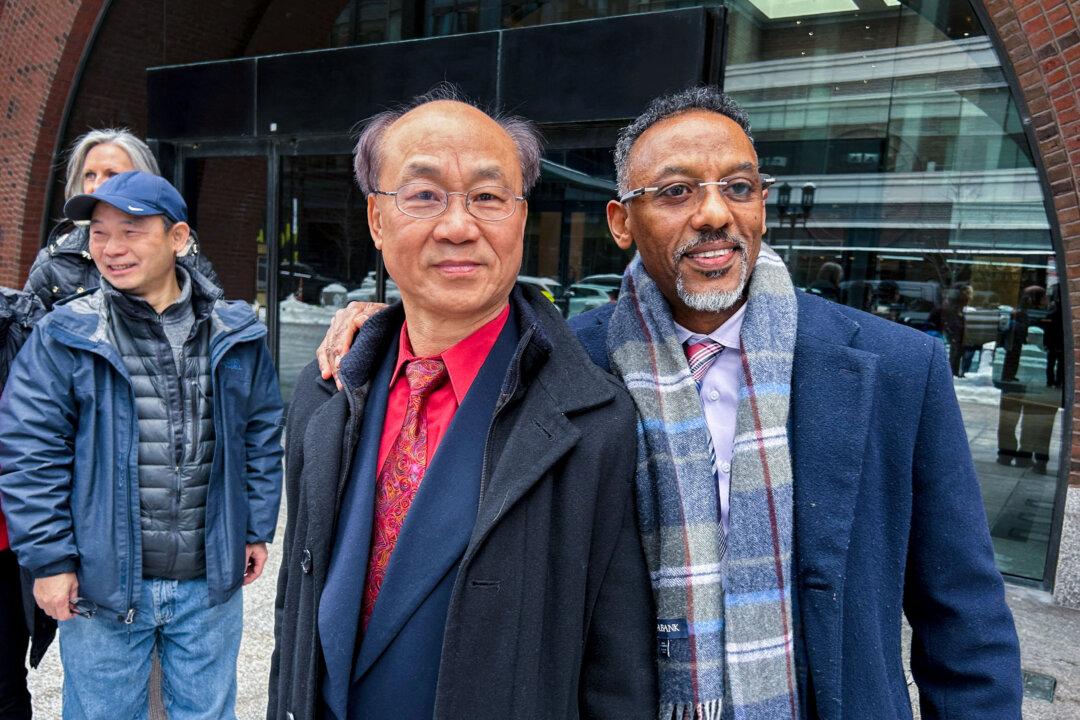One morning in early October 2021, Alex Lee woke up from an intensive care unit (ICU) in a North Dakota hospital with one less tooth, one less spleen, but several more scars. What hasn’t changed was his determination to ride to Boston, the birthplace of American freedom.
Starting from Los Angeles, California, the cyclist carried a “Fight for freedom, stand with Hong Kong” banner all the way through the harsh winter and scorching deserts. He had endured moments of bitter embarrassment, and even narrowly escaped ‘the call of heaven’ in a car accident.




